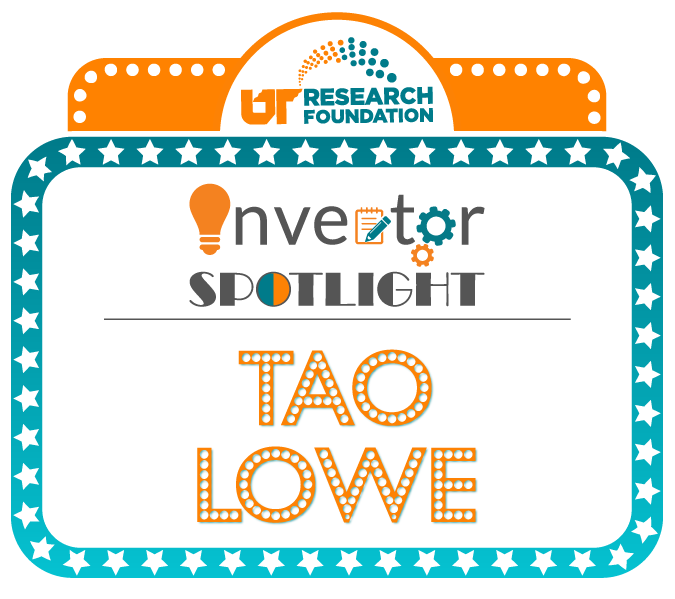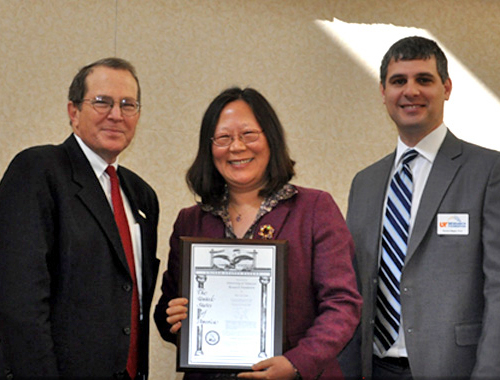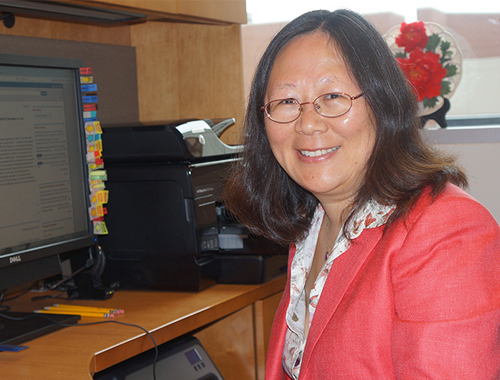
Tao Lowe, Ph.D. is an Associate Professor of Pharmaceutical Sciences and Biomedical Engineering in the College of Pharmacy at the University of Tennessee Health Science Center (UTHSC). Her primary interest is the use of biomaterials for translational research in areas such as nanotechnology, drug and gene delivery, regenerative medicine, precision medicine, neural engineering, stem cell engineering, contraception, and biosensors. Dr. Lowe received her Ph.D. in Polymer Chemistry from the University of Helsinki, Finland and conducted two years of postdoctoral research in the Chemical Engineering Department at the University of Wisconsin, Madison. She served as an Assistant Professor of Surgery, Bioengineering, and Materials Science and Engineering at the College of Medicine at Penn State before joining UTHSC in 2011.
One of Dr. Lowe’s current projects involves the development of nanoparticles that can deliver drugs across biological barriers, including blood brain barriers and blood retinal barriers. Dr. Lowe has developed a subconjunctivally injectable, insulin-loaded nanogel that is highly permeable across the blood retina barrier, enabling a sustained, localized release of insulin in the retina to treat diabetic retinopathy. This nanogel technology requires a single injection, avoiding the need for repeat injections that can lead to damage to surrounding tissues. In February 2017, Dr. Lowe received a $1.9 million award from the National Institutes of Health to fund this project. She hopes to eventually leverage this technology to develop a drug delivery system for the controlled release of drugs to treat additional ocular diseases, such as glaucoma and age-related macular degeneration.



Another recent project to emerge from Dr. Lowe’s lab is the development of a long-lasting contraception formulation technology that addresses a gap in the current contraceptive market. In today’s market, most forms of injectable contraceptives last for only a few months, while others last up to two years and must be surgically implanted. This technology involves a subcutaneously injectable in situ gelling polymeric solution system that can deliver a sustained release of contraceptives for 6 – 12 months, bridging that gap. The goal is an injection that costs under four dollars, making it affordable for most women. A smaller needle size (21-23G needle vs. 19G needle for a similar technology) enhances comfort and improves patient compliance. Because it is a subcutaneous injection, patients might even be able to administer the contraceptive themselves without having to go to a hospital or doctor’s office for treatment. This technology was recently featured in a paper co-authored by Dr. Lowe, Injectable In Situ Forming Depot Systems for Long Acting Contraception, published in the August 2017 issue of Advanced BioSystems. Although Dr. Lowe’s contraceptive technology has not yet gone through clinical trials, she is actively searching for a commercial partner to help her advance through that phase and onto the commercial market.
In addition, Dr. Lowe’s lab is pursuing several projects involving regenerative medicine, developing novel biomaterials that will act as 2-D and 3-D scaffolding to promote cell growth and differentiation. Examples include engineering porous, thermoresponsive, and partially biodegradable hydrogels that can be used as 3-D scaffolds to grow chondrocytes for cartilage repair, and thermoresponsive block polymers to act as 2-D supporting film materials for growing osteoblasts for bone regeneration.
Currently, Dr. Lowe has nine patents and three pending in her diverse research portfolio. She works closely with the University of Tennessee Research Foundation throughout the patent application process and is grateful for their support in the areas of applying for a patent, identifying research funding, or promoting her technology for commercialization. She credits her lab team, the support she receives from colleagues, and the innovation-friendly environment promoted by the university as vital to her work.